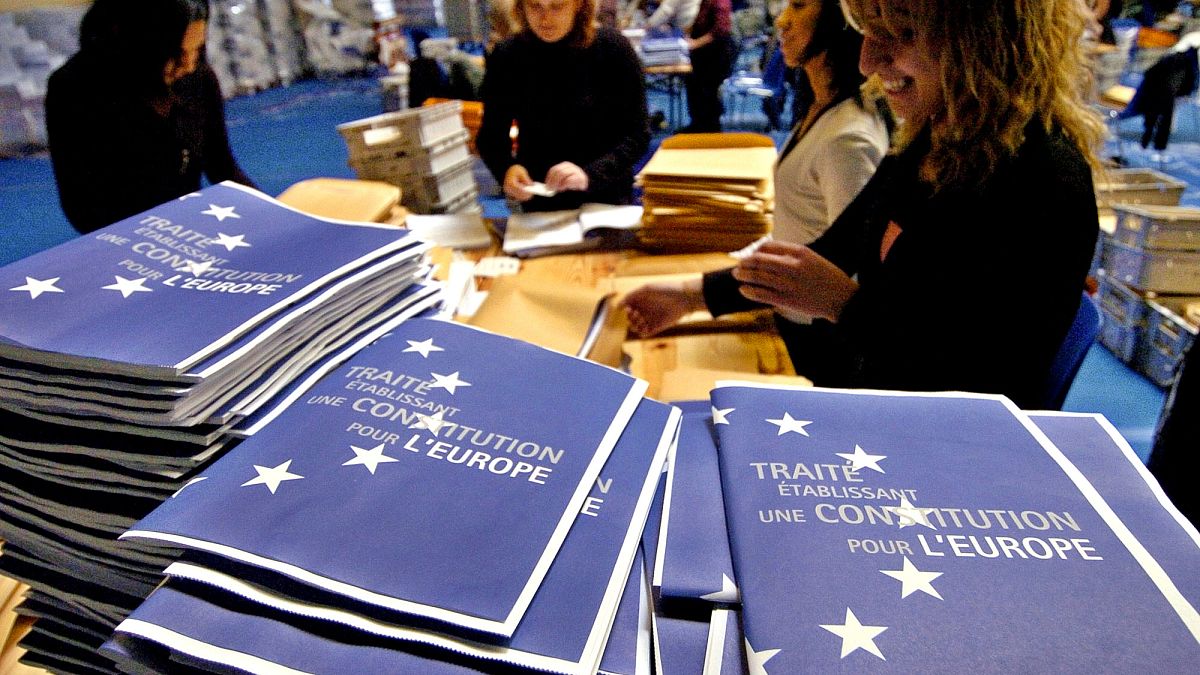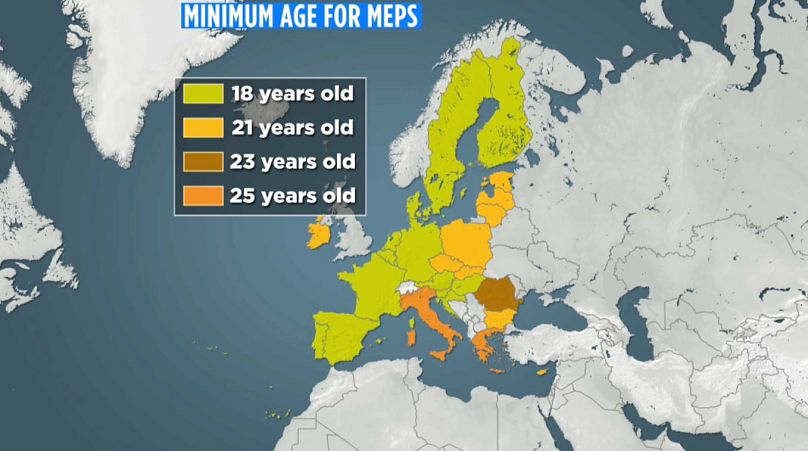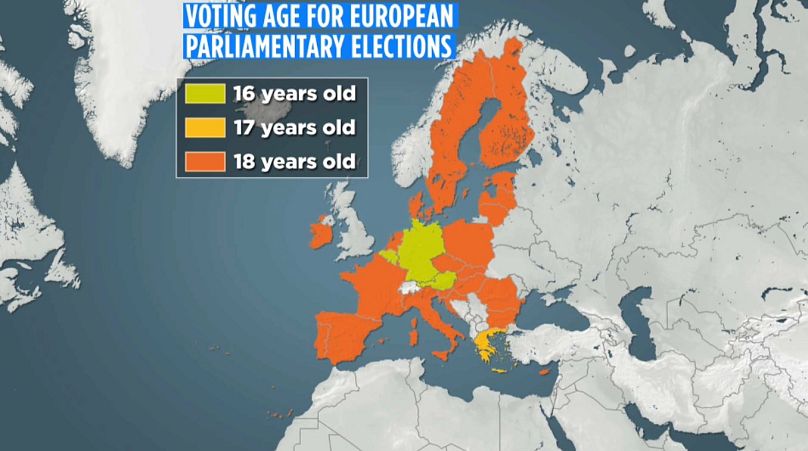
“I often hear that I don’t have enough experience. But I’m 25 now and you have a number of MEPs who have been here longer than I have been born. I think to me that’s totally crazy”, Europe’s youngest MEP Kira Marie Peter-Hansen tells Euronews.
Peter-Hansen is a member of the Greens–European Free Alliance. She was elected at the age of 21 in the 2019 European Parliamentary elections.
The Danish politician is one of 720 MEPs who will stand in June’s elections and one of Europe’s six parliamentarians aged under 30 years old.
Europe’s youngest MEP
Peter-Hansen is used to facing criticism for her lack of experience.
“If you want developments within politics, of course, it’s good to have experience and the historical knowledge, but perhaps there is a point where you can start to think, should someone else, have the chance to make a difference?”, states Peter-Hansen.
Although her party was supportive of her young age, Peter-Hansen insists that parties across the spectrum are increasingly warming to young candidates, “the Green party has young candidates but at the other end of the spectrum the far-right parties also has young politicians,” she says.

European states set the age at which candidates can stand to become MEPs.
The threshold varies across Europe, in 16 member states candidates must be at least 18 years old to run. In Bulgaria, Cyprus, Czechia, Estonia, Ireland, Lithuania, Latvia, Poland and Slovakia candidates must be 21 years old.
In Romania candidates must be 23 years old, whereas the threshold is 25 years old in Italy and Greece.
What do young Europeans want?
Despite the lack of young politicians in the European Parliament, the prospect of youth engagement for the 2024 elections looks hopeful.
The 2019 European elections saw the highest turnout since 1994, driven by a surge in youth participation as outlined by a Eurobarometer survey.
Last year, the Young European Federalists (JEF) launched a mass survey to determine what young European’s key concerns are. Over 1.5 million votes were submitted by Europeans aged between 18-35 years old.
“Reforming institutions, the economy and addressing the climate crisis came out on top”, Christelle Savall, President of JEF tells Euronews.
However, when it boils down to more concrete policy proposals, some measures were more divisive.
“Limiting air transport was a big divide. Another big divide revolved around federalism, whether we should give more powers to the European Union for things where we need to pull out our resources, against nationalism and a more sovereign Europe.”
The campaign to lower the voting age to 16 years old
As well as setting the age for candidates, member states determine the citizens’ voting age for the European Parliamentary elections.
The voting age is set for 16 years old in Austria, German, Malta and Belgium, 17 years old for Greece and 18 years old for the rest of Europe.

The European Youth Forum – one of the world’s largest platforms for youth organisation – has been fighting to lower the voting age to 16 years old for over a decade.
“We truly believe that once you are 16 years old, you have so many responsibilities as a young person, as an adolescent you can work, pay taxes”, states Rareș Voicu, Board Member at the European Youth Forum.





